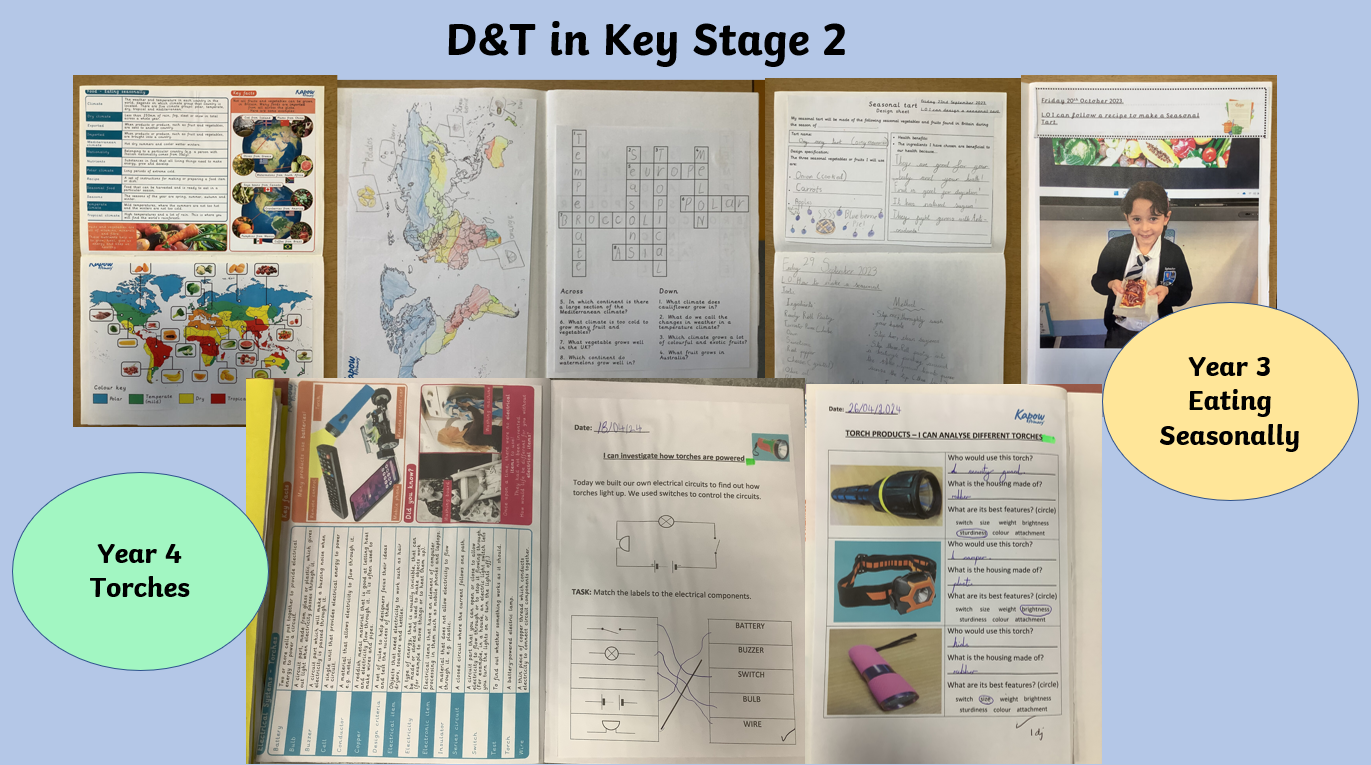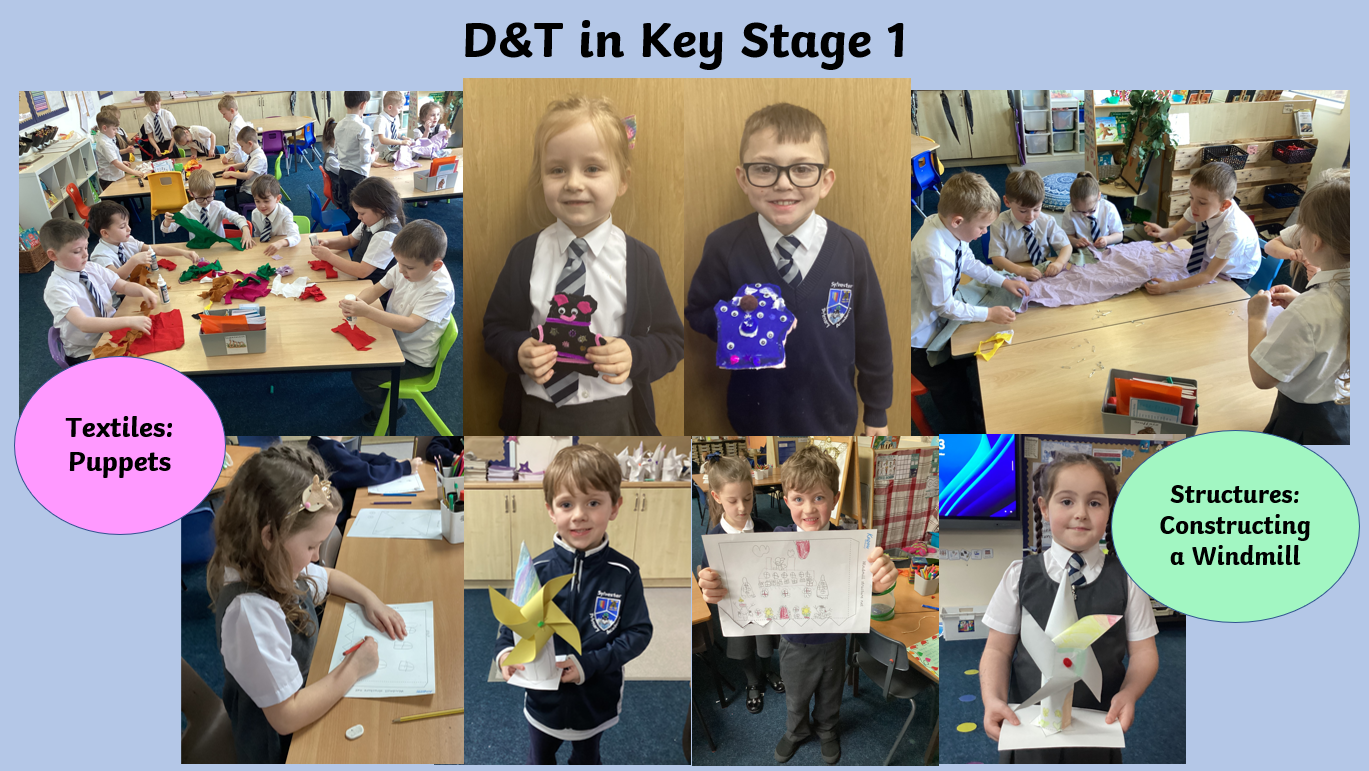- Home
- Curriculum
- Design & Technology
Design & Technology
Statement of Intent
At Sylvester Primary Academy we provide all children with a broad and balanced curriculum which prepares them for life beyond primary education. We encourage children to use their creativity and imagination to design and make products that solve real and relevant problems within a variety of contexts, considering their own and others’ needs, wants and values. Design and Technology is an inspiring, rigorous and practical subject. It can be found in many of the object’s children use each day and is a part of children’s experiences.
Design and Technology encourages children to learn to think creatively to solve problems both as individuals and as part of a team. At Sylvester the Design and Technology curriculum combines skills, knowledge, concepts and values to enable children to tackle real problems. It can improve analysis, problem solving, practical capability and evaluation skills. We strive to link work to other disciplines such as maths, science, computing and art. The children are encouraged to become innovators and risk-takers.
How We Teach Design & Technology
Our school follows the Kapow scheme of work for Design and Technology. We use the Art & Design and Design & Technology combined scheme of work, which means that teaching will alternate between the two subjects each half term. The scheme ensures that D & T makes a high-quality contribution to the primary curriculum, helping to raise standards in other subjects, such as Maths and English. Following the Kapow curriculum also ensures that children participate in units which focus on developing technical skills and independence, including cooking skills.
The Kapow scheme of work follows the National Curriculum, which outlines the three main stages of the design process: design, make and evaluate. Each Kapow Primary unit follows these stages, to form a full project. Each stage of the design process is underpinned by technical knowledge which encompasses the contextual, historical and technical understanding, required for each strand.
There are 6 key areas in our Design & Technology curriculum, which are revisited across the children’s school journey; cooking and nutrition, mechanisms/mechanical systems, structures, textiles, electrical systems and digital world. This promotes a spiral curriculum, which ensures that children can return to key knowledge several times throughout their primary education. This gives children the opportunity to consolidate and deepen their prior knowledge, as well as expand on and improve their skills further.
Early Years Foundation Stage:
The design and technology curriculum promotes and improves all areas of children’s learning and holistic development. Whether this is improving children’s fine motor skills through using a pair of scissors or improving number skills when counting out materials. D&T promotes independence for the younger children in our school and allows for them to explore and investigate.
A foundation of design and technology knowledge is promoted throughout the EYFS in our school. The ‘design, make and evaluate’ process is promoted throughout continuous provision activities which also link with topics in other subjects, such as Literacy and Science. For example, this year Reception will be creating their own boats when exploring the story ‘The Night Pirates’. This topic will also cover floating and sinking in science, which shows how our D&T curriculum closely connects with other subjects and skills. Reception will also be making their own junk model inventions when exploring the story ‘Izzy Gizmo’.
Adaptations for SEND in the Design and Technology Curriculum:
The Design and Technology curriculum in our school is accessible for all children. Effective adaptation depends on teacher’s understanding and meeting the individual needs of all SEND pupils. Adaptations may include chunking learning into smaller, manageable tasks that still build up to an end product or supporting any sensory needs, such as sensitivity to textures or odours. Children’s individual needs are supported to ensure that they can enjoy and make progress with their D&T skills and learning.
Curriculum Enrichment:
So far this academic year, we have offered a D&T afterschool club for Year 2 & Year 3 children. During this afterschool club, the children enhanced their knowledge of D&T through designing, making and evaluating different projects, including star constellations, flying rockets and even planets! Throughout the rest of the school year, we are hoping to offer a D&T club for other year groups to participate in.









